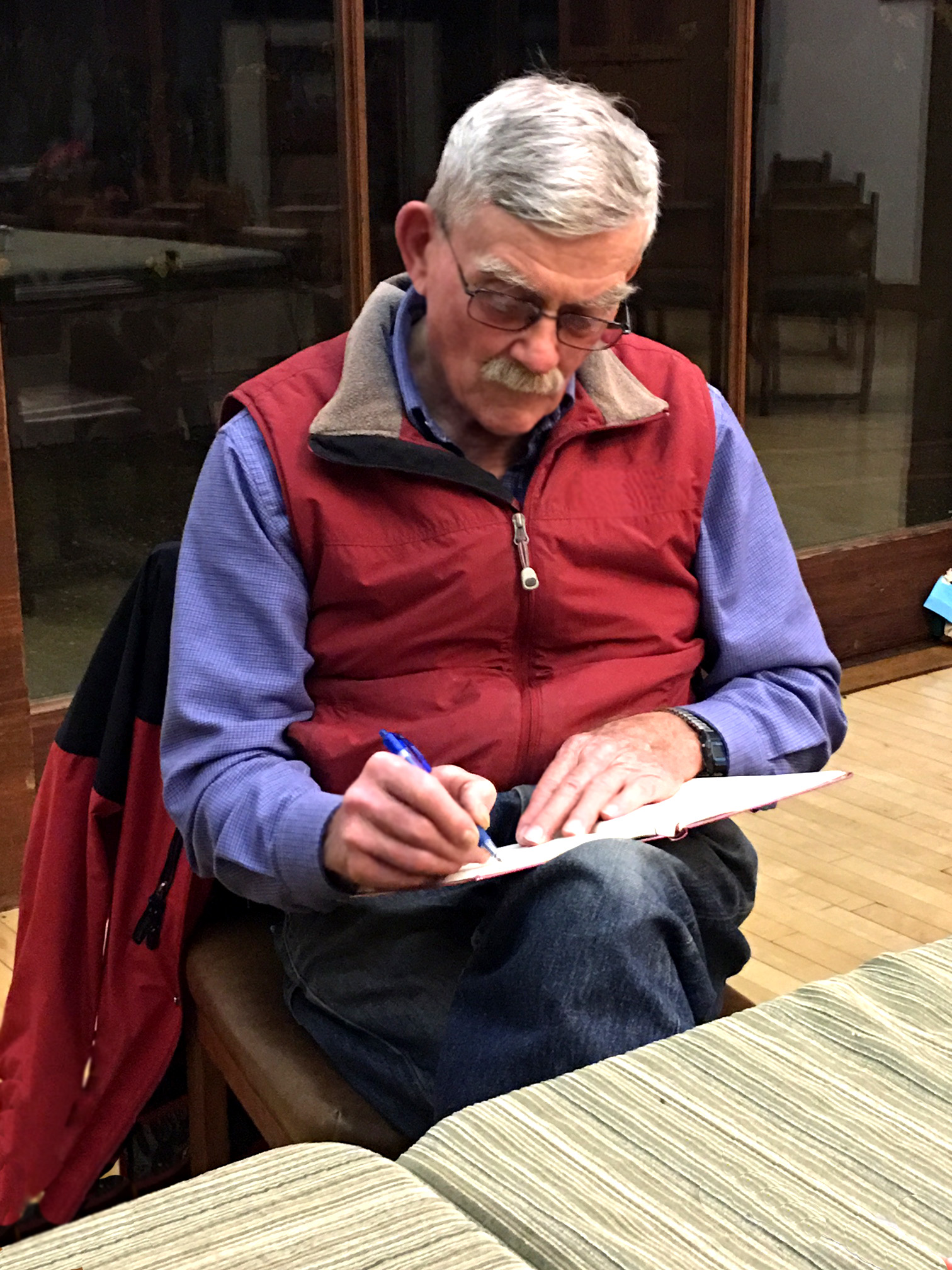The Path to Detachment
/This week’s post is from Sheryl in Davis, California, who describes her ability to overcome a "family samskara” (an ingrained habit or tendency) using her practice of the eight points.
The 8PP (eight-point program) has changed my life. I have spent a lot of years working on what I now call a “family samskara”, and this path has opened up the most positive and transformative way to do so.
At a very early age, I was drawn to a relationship with the Lord of Love, although it was a confused relationship in that I thought I could direct the Lord to do what I thought would be best for myself and those around me. Through many difficult situations and the loss of the family through the diseases of alcoholism and mental illness, I’ve been on a very long quest for a positive path that would heal grief and the past. I've also yearned for a deep connection with the Lord of Love, finally realizing that I would need to surrender to life as it happens.
In June, 2011, the 8PP came into my life. There were difficult challenges surrounding me, and the 8PP appeared at a time when I was desperate to find “something else” to help with the fear, confusion, anger, attachment, and grief that was happening around me and in my mind. I had spent years in 12-step programs where I heard a lot about detachment…from others, from the things they did, the way the lived, what they said and thought. I soon began to understand that Sri Easwaran had a very different slant on detachment, and that he was talking about detachment from my own stuff, the opinions, likes, dislikes, and judgments going on in my mind. This was revolutionary thinking coming from where I’d been!!
The more I read, meditated, studied and listened, the more I began to get small glimpses of the freedom found from this level and understanding of detachment from those I love, from anyone around me. I’d grown up thinking it was my responsibility to “save others” and the only way to do that was to know all I could about their situation and “help” them with it. This did not work all those years ago, but it was the only thing I knew. Until…the 8PP!!
Sheryl on at Dillon Beach during a mantram walk at a weekend retreat.
The family samskara I’ve identified has certainly been an on-going challenge throughout my life. It has manifested with the mind putting attention on the likes and dislikes around relationships, to focus on the ‘right’ way things ’should’ be. With the help of passages such as “Give Up Anger” from the Dhammapada, I’ve learned that “no sorrow will ever befall those who never try to possess people and things as their own.” From the Sutta Nipata, “Discourse on Good Will’ I’ve learned to pray that “all creatures may be filled with joy and peace,” and to allow my love to grow boundlessly for all others, all creatures. In Lao Tzu’s passage, “The Best” I’ve learned that I want to be like water, benefiting all and not competing with anyone or anything. I’ve used the “Recommended Passages for Specific Uses” in the back of God Makes the Rivers to Flow to choose passages that are transforming old ideas from the mind into the person I want to become. That person is the most loving, healthily detached, giving, grateful wife, mother, grandmother, friend, satsang, community and world member I can be.
St. Francis among the lilies in Sheryl’s backyard.
Now I have the resources I need to continue to grow in this manner. In The Constant Companion, I love the description of detachment found on page 241, “Virata, Free From Craving”, and a quote from Epictetus: “…to behave in life as you would behave at a banquet. When something is being passed around, as it comes to you, stretch out your hand and take a portion of it gently. When it passes on, do not try to hold on to it; when it has not yet come to you, do not reach out for it with your desire, but wait until it presents itself. So act toward children, toward spouse, toward office, toward wealth." I have added “toward grandchildren” to this list!!
Sheryl and her husband Bob in West Seattle.
The 8PP continues to open my eyes and change the thoughts in the mind about life, love and others! I believe I’m able to see and be so grateful for the gifts around me because of a more solid, loving and detached manner of “knowing”. My husband, Bob, and I attended his first Introductory Weekend Retreat this year because he wanted to learn more about passage meditation; what a gift! We have many opportunities to give and grow in the two communities in which we live. I know that the “family samskara” is still lurking around, and that the mind is still “upsettable”. I also know more about, believe in and live the 8 point program each day to the best of my ability, and with the mantram, meditation, slowing down with one-pointed attention, constantly training the senses, putting others first in a healthy, detached manner, continual reading of spiritual materials, and engaging in incredible opportunities for satsang, this samskara is beginning to pack its bags!!
Sheryl and Bob after Bob's first mantram walk at Dillon Beach in February 2016.







